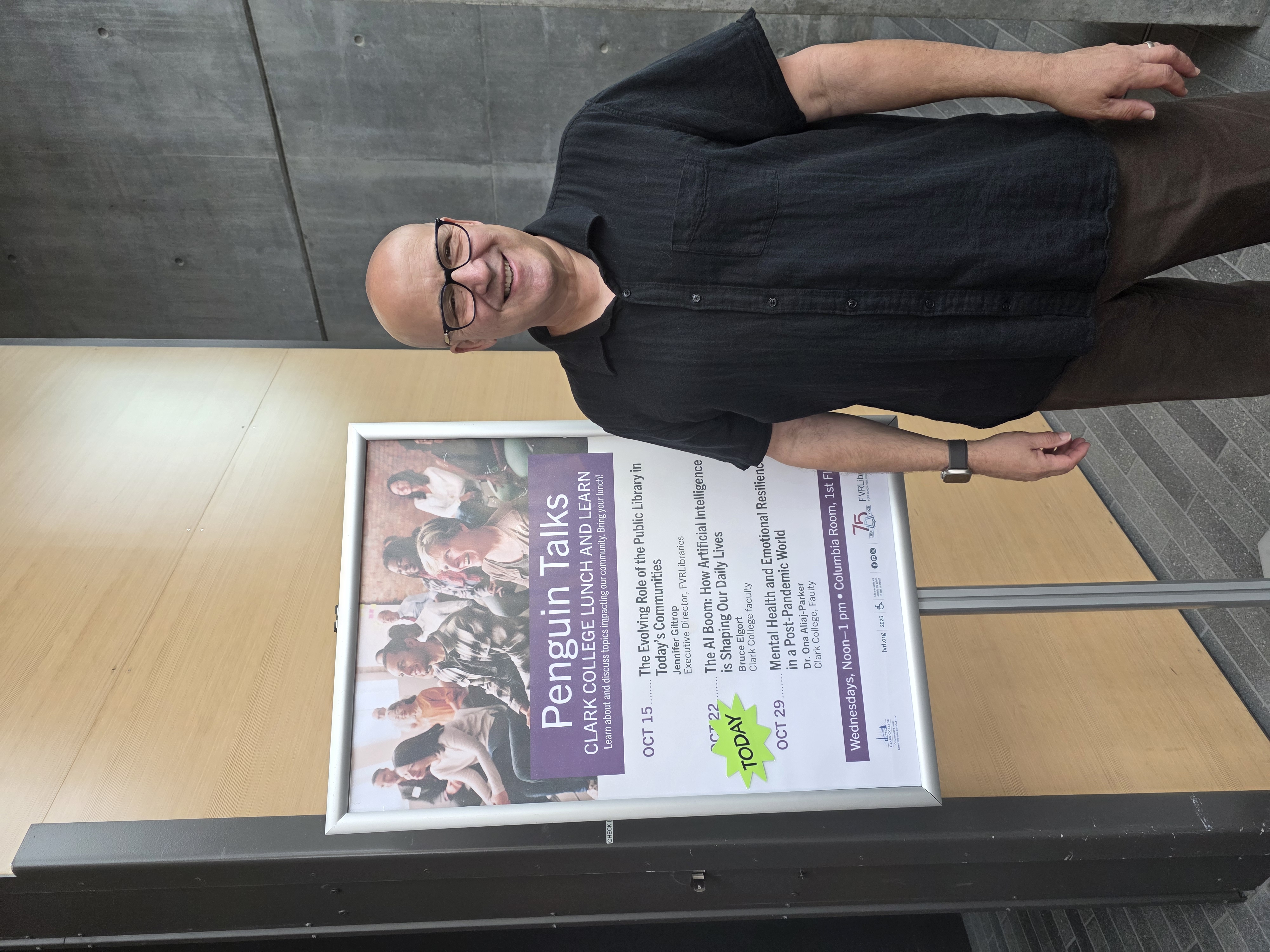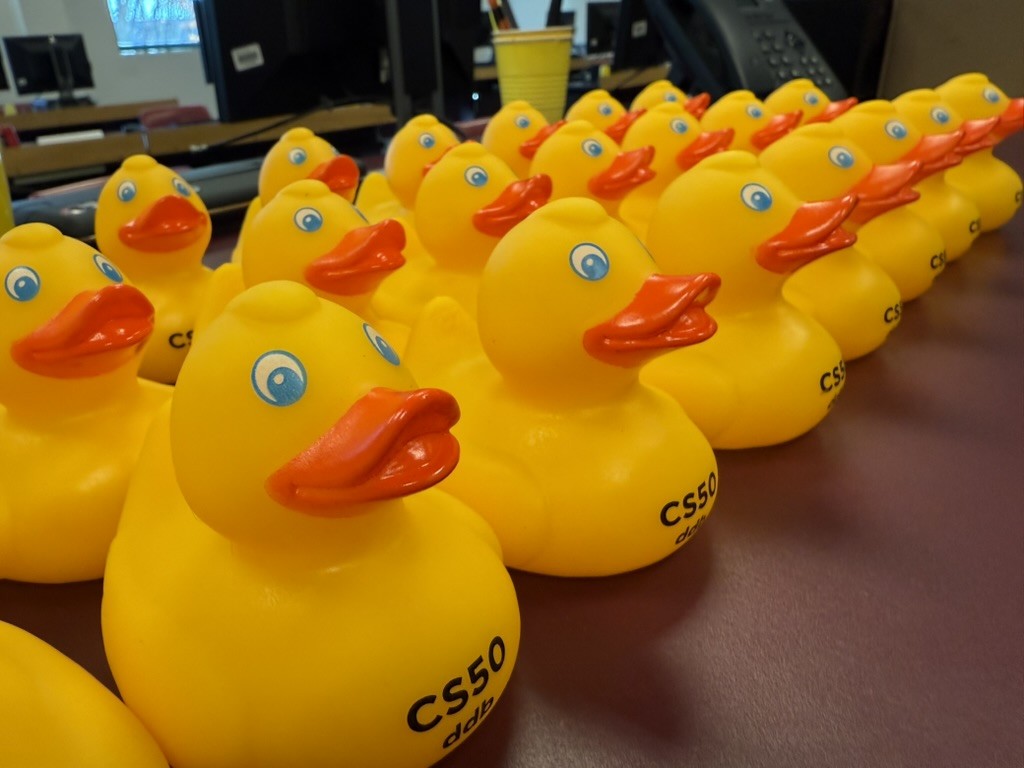Understanding AI in an Evolving World
Bruce Elgort encourages critical thinking about AI in this week's Penguin Talk

Before he had even reached his office, Bruce Elgort (pictured above) had already used artificial intelligence half a dozen times. Alexa brewed his coffee and armed his home alarm. Apple Music queued up a personalized playlist. Siri summarized the most urgent emails waiting in his inbox.

But Bruce, a professor of computer technology at Clark College, wasn’t there to marvel at convenience. His Penguin Talk, "Everyday AI: Understanding its Role in Our Evolving World,” held October 22 at the Vancouver Community Library, invited the audience to explore the duality of AI—its usefulness and innovation, but also its ethical and educational challenges.
“What does it mean to know something in 2025?” he asked. “There’s a difference between having the facts—which is what AI tries to do—and understanding the story behind them, which is what humans do.” The way AI works is by finding patterns and predicting what comes next. “Basically,” he said, “it’s guessing really, really well.”
This isn't Bruce’s first time tackling the topic. In a 2017 talk, “How We Work: Impact of AI in the 21st Century,” he focused on how AI impacted the workplace. Looking back, he admits he got something wrong—he didn’t include the major ways AI would seep into everyday life.
AI isn’t new, he explained, but simply became more visible. For example, Clark students have been using AI since 2017 to analyze X-rays. Now in his 14th year at Clark, Bruce sees its impact clearly in education. With tools like ChatGPT readily available, it's increasingly difficult to objectively assess what a student knows versus what technology helped them create. Bruce wants to ensure his students understand the fundamentals of a concept before playing with AI, emphasizing that we need to figure out how to teach young people how to ethically use AI while also developing the skill to think for themselves.

To make that possible, Bruce is exploring ways AI can support critical thinking in the classroom. One approach builds on a classic programming exercise known as Rubber Duck Debugging, where students explain their code step-by-step to a rubber duck. The idea behind it is that by simply verbalizing their thought process, students realize their mistakes and uncover solutions. Bruce has taken that method a step further with an AI-driven rubber duck (pictured right).
By uploading course materials and instructing it to never provide direct answers to questions, the duck has become a digital thought partner for the student. The conversation that follows challenges students to reason through problems rather than rely on quick fixes.
“Used thoughtfully,” Bruce said, “AI can be a powerful tutor.”
He ended his talk by addressing what he calls “the Dark Side of AI”—the need for media literacy and transparency in a world where technology advances faster than consent.
“AI isn’t neutral,” Bruce emphasized. “It instead reflects the incentives of those who build it. It mimics intelligence, but not empathy. It may know what’s right, but not why it’s right. That’s why humans are the variables that technology cannot predict.”
Upcoming Penguin Talks
Registration is free—sign up for future Penguin Talks here.
Mental Health and Emotional Resilience in a Post-Pandemic World
 Clark College faculty member Dr. Ona Aliaj-Parker
Clark College faculty member Dr. Ona Aliaj-Parker
Wednesday, October 29, 2025, 12-1 p.m.
Vancouver Community Library
Addressing the importance of emotional resilience and mental health across both personal and professional landscapes. Explore how to build resilience in an ever-changing world, apply mental health strategies for individuals and teams, and understand the role of mindfulness and self-care in long-term success.
About Penguin Talks: Clark College Lunch & Learn
Hosted by Clark Community and Continuing Education, this free lecture series invites the public and college community to explore critical topics and engage with inspiring local experts. Registration is free—sign up for future Penguin Talks here.
Featured Photos: Clark College/Malena Goerl & Bruce Elgort
Story by Malena Goerl, Staff Writer, Communications & Marketing
